Teaching English abroad, especially in Korea has become a popular way for travelers to not only explore a new country but also save money for travel. But what is it really like to teach English in Korea?
To answer that question, we invited fellow traveler Duke Stewart to share his experience teaching English in Korea and to answer any questions you may have.
Tell us about yourself and how you got into teaching English in Korea?
My wife (then girlfriend) and I were looking for a change in life and a friend of mine had been raving about Korea. After a bit of time gathering all our documents and selling most of our stuff, we started looking into ways to get over there. We found a recruiter and made the trip within 6 weeks, spending about 4 years in the country.
What are the requirements for teaching English in Korea?
The running joke used to be that you could get a job in Korea with a degree in basketweaving and a pulse, but things are changing a bit now. If you want to get into the dwindling yet cozy public sphere, then you’ll need a TEFL certificate if your degree isn’t in teaching, English, or something else related to the job. Previous teaching experience is a plus but not required, though it will help when salary discussions begin. If you’re showing up with just a degree, don’t expect to get a good job the first time around.
What does teaching English in Korea actually look like?
A typical day depends on the job, honestly. Some jobs give you time to prepare before your first class while at others, you’ll be walking into work and right to class. That might sound hectic but in some cases, it’s good because you’re not wasting time and getting right to work. Some schools give teachers time to plan classes and some want their teachers to spend an entire day in the classroom. Public school schedules generally run 8/9-5 while private can start either at 9 or 12, depending on the age group that you’re teaching.
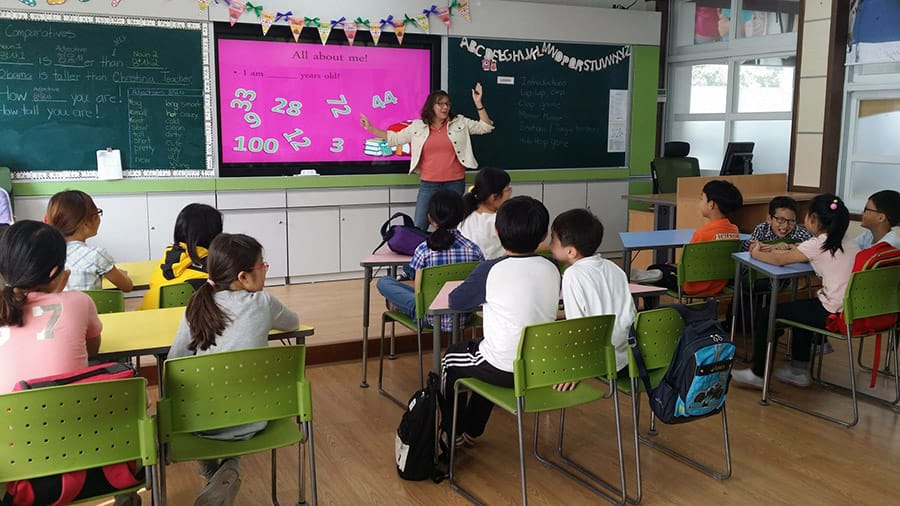
Did you find it difficult to relate to the students you were working with due to cultural differences or language barriers?
At times, it’s challenging and depends on your co-teachers or boss. Get to know your kids and you’ll eventually learn what they like, even if their English level is very low. There are going to be a lot of awkward moments when you’re questioning whether or not the students will ever get what you’re teaching. At the end of the day, you’re exposing them to a language and culture that they only know through tv and movies. The kids may not achieve perfect fluency but feel good in that you’re at least showing them something new every day.
How much money can one make teaching English in Korea and which teaching job are the best?
A lot of private schools start out at 2 million won ($1800) per month, though higher salaried positions are out there. Also, your credentials and experience play into this so be mindful when mulling over the first position that comes your way. Public school jobs start out a little bit higher and universities are about the same. In some cases, schools pay an extra 300,000 won ($270) as a “hardship fee” like they did at my university. Not sure how hard it is to live in a city of 200,000 people, but I’ll take it! I’d say for time off and more guarantee of good pay/support, public is the way to go. Standard time off for private schools is about 2 weeks while public schools offer more, and vary accordingly. However, things are changing and those good public jobs are becoming scarce.
How does one get a job teaching English in Korea?
For public school jobs, many people go directly to the EPIK site to apply. However, it’s possible that they’ll get rejected without any reason as to why. Recruiters such as Reach to Teach will actually help with your EPIK application, because they know what is expected of a prospective applicant. Those looking to teach public school likely have to adhere to the intakes, which happen in March/April or September. There are occasional public jobs that pop up during the off times but don’t count on them. If you want to get to Korea any other time, there are private positions available throughout the year. Expect your journey from applying to landing in Korea to take at least 6 weeks, though the visa process is improving in some cases. Make a recruiters life easy by promptly responding to emails and staying on top of your documents.
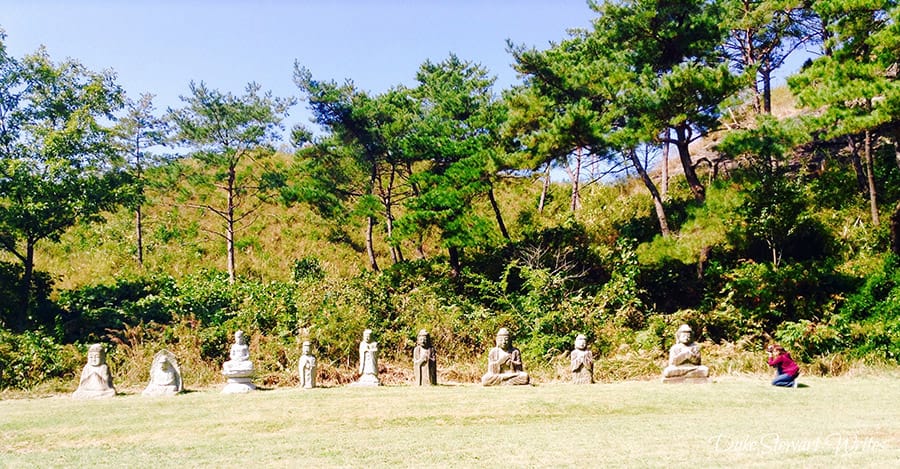
What is like living in Korea and what did you do in your free time?
Korea’s a great place to live for those who need some time away from home and want to travel while getting paid. I think Korea is one of the safest places on earth, and many people will easily agree with that. They could do something about the air pollution but are more concerned with blaming China for the smog and yes, some of it does come from there. Seoul, Ulsan, Yeosu, and many other cities are guilty for their part in the dirty air game. While your pay might seem less than compared to home, cost of living is relatively lower and you shouldn’t have to pay for rent. Some folks have to pay fees that come with living in an apartment but that varies. Food prices are increasing but are still lower than most parts of the U.S. and definitely less than Japan.
You’ll definitely find things to be different and culture shock is one part of living abroad. The sight of soju-smelling vomit or pushy old ladies will be two of the many things that hurt your preconceptions. There are plenty of Facebook groups out there for venting about it, with OINK being the loudest forum for voicing one’s dislike of Korean culture’s bad side. Not everyone sits on their computer and complains about Korea and you’ll be able to find some friends, unless you live on a remote island somewhere. Most cities or counties have at least one Facebook group where people can organize meet-ups throughout the year.
What advice do you have for teachers looking to find work in Korea?
Don’t go for the first recruiter or job that’s offered to you. Recruiters get a cut and some are eager to push positions offering a higher finder’s fee, regardless of whether or not said school is the best fit for you. That wasn’t the case for us and if our first and second recruiters were still in the business, I’d definitely recommend them.
If you were to force a negative thing or two about Korea out of me, I’d say that homesickness is a real thing that happens to most of us. Working on traditional holidays such as Thanksgiving was hard for me. My jobs didn’t really offer sick days and the one time that I was allowed to go home early, I had to show that I could barely move. I think studying up a bit more on Korean culture and language would have helped us in hindsight. Those living in Seoul or Busan don’t have to worry as much but if you go out into the smaller cities, a little bit of Hangeul (Korean alphabet) knowledge could go a long way.
Can you recommend any resources to people who are looking to teach english in Korea?
If you’re looking for a job and don’t know which recruiter to choose, go to DavesESL for jobs and recruiter postings. Don’t just go with one recruiter and do your research on jobs, cities, all of the above. Due to strict libel/slander laws, it will be hard to find any negative feedback but dig deep and you’ll find helpful info. Your’e going to be living and working in this place for a year so you want to be happy, right? Waygook.org is good for lesson plans of all types but I also liked Busy Teacher and Breaking News English.
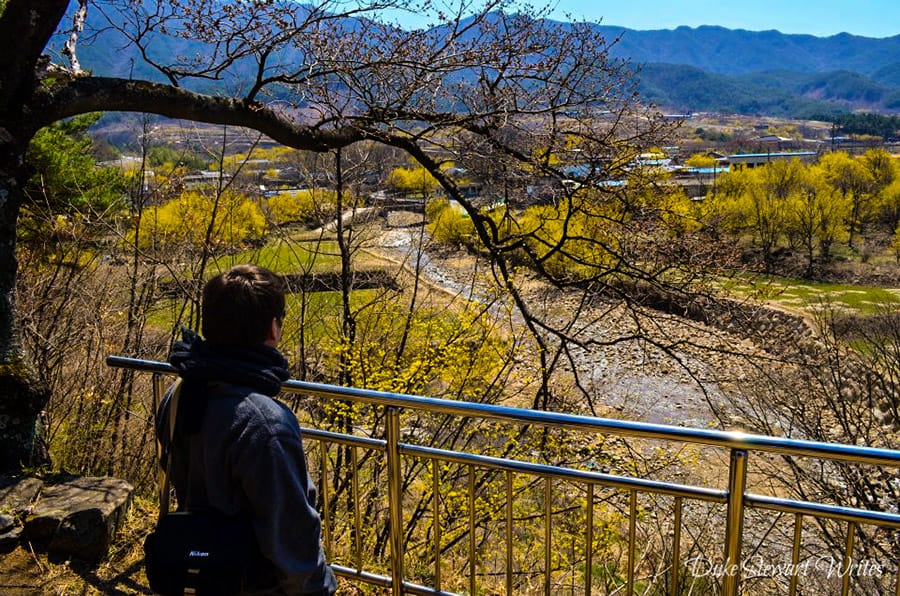
Is there anything else that you would like to answer and wasn’t covered on here?
I think it’s important that you stay grounded and positive while living in Korea. There are so many complainers out there who drown out the good aspects of living there. It’s relatively safe and you get free housing, so it’s not a bad deal. You’re also within a short plane ride from Japan and not too far from Southeast Asia, which means a whole world of opportunities right at your doorstep.
Duke Stewart is a recovering American expat who writes about life through travel—and wants you there with him—through captivating stories and guides at DukeStewartWrites.com.
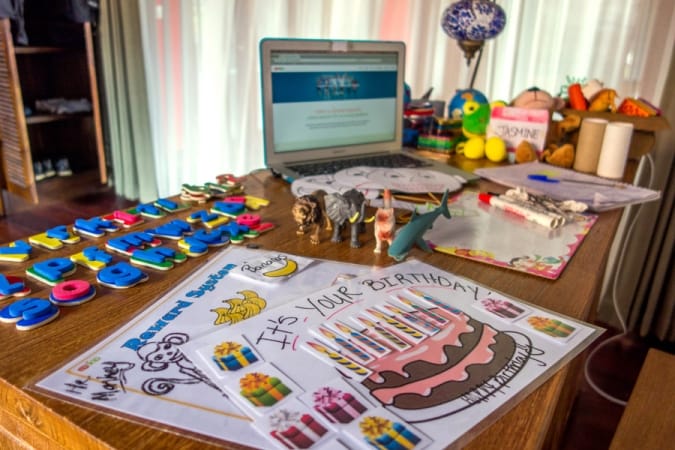

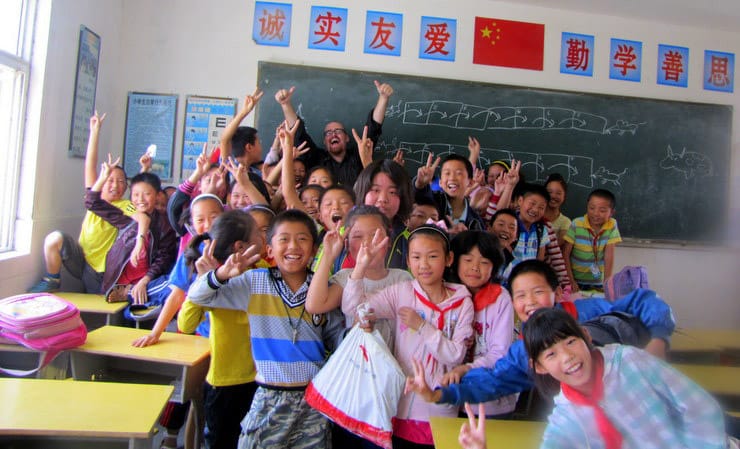



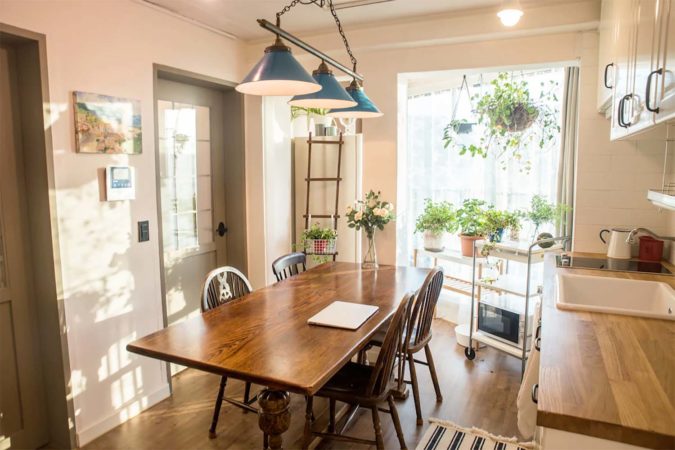
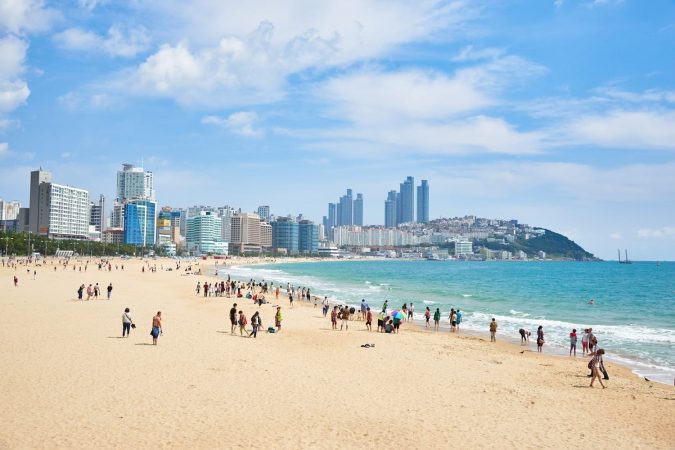
Lisa Donnelly
You don’t say whether the $1800 or 2 million won is weekly or monthly ? Or did I miss that ? TY . Do they take old people like a 59 year old teacher ?
Ben
That is per month and yes they do take older people as well.
Ian Leahy
I didn’t think the air pollution in Korea was that bad compared to Taiwan or China. I lived in Busan and Changwon.
Leo
Hey Duke,
Thanks for this post. I went into ESL in Korea as a “gap year” and wasn’t in the best place in my life to go out there. It was a lot of soju and a very unprofessional hagwan. I ended up leaving after 6 months because I wasn’t fulfilled. I got a masters in education and ended up moving up the career ladder getting into international schools. A lot more mature and more focused I was able to get fast tracked into a good career in the international schools. Korea would be a place I’d have a crack at again now that I’m in a better place. A lot of what you write is great and I’m happy to see you have such a positive experience.
Cheers,
Andrew
Great article, I have been teaching ESL in Korea for over ten years. Life isn’t perfect here, but it’s pretty good. I mostly do freelance and part time work. I’d recommend anyone that is thinking of coming here to do there research. Make sure u you end up in a city you want to be and a position to you like.
Jazzy
Wow over ten years! You must love it there! Thanks for stopping by and sharing your advice with our readers Andrew :), appreciate it!
Charles McCool
Interesting comment from Duke Stewart to not go with the first teaching opportunity. I did not realize that there are recruiting fees. Great info.